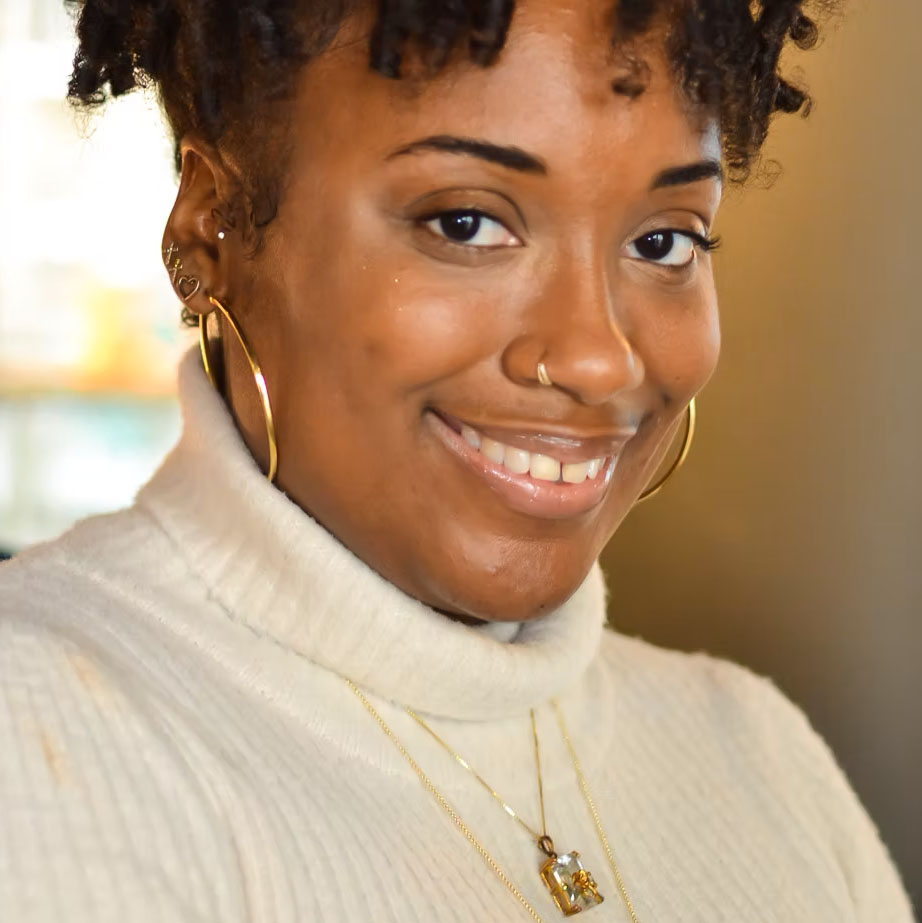Presenter Profile

Kristi James, DrPHc, MPH, CHES
Creative Connections
kristi@ourcreativeconnections.com
Kristi James is a dedicated public health professional, consultant, and educator with over 10 years of experience in community health, workforce development, and health policy. Currently pursuing a Doctorate in Public Health (DrPH) in Health Policy and Management at the University of Georgia, she holds a Master of Public Health (MPH) in Family and Child Health and is a Certified Health Education Specialist (CHES). Kristi has a proven track record in designing and implementing evidence-based health initiatives focused on mentorship, mental health, and policy change. As a Consultant for the American Public Health Association (APHA), she plays a key role in shaping workforce development strategies for Public Health AmeriCorps, supporting leadership training, networking, and program coordination. She also serves as Regional Director for the Urban Leaders Fellowship, where she guides emerging leaders in policy development and career growth. Currently, as the Chief Health Officer for Creative Connections, Kristi leads public health initiatives addressing health disparities among Black and Brown students, chronic disease management, and systemic policy change in underserved communities. Her work has been recognized in academic research, conference presentations, and leadership fellowships, including the Students Who Rocked Public Health Award in 2022. Her expertise in strategic partnerships, health equity, and community engagement makes her a respected leader in the field, committed to driving sustainable changes in public health.
Presentations
Training Tomorrow's Prevention Leaders: Insights from the Black Boys Better Youth Ambassador Program
Chris James, CPS-MH, CAMS
Kristi James, DrPHc, MPH, CHES
The workshop will highlight the Black Boys Better Youth Ambassador Program, an innovative, culturally responsive initiative designed to engage and empower Black boys through mentorship, mental health awareness, and leadership development. Centered in Georgia, this program equips middle and high school students with knowledge and tools to navigate life challenges, including opioid misuse and suicide prevention, while promoting community resilience and identity pride. The Black Boys Better Youth Ambassador program has leveraged the knowledge and access of Black boys to receive mental health education and support their peers. Through this approach, the program's goal is for youth to be trained on opioid and substance use prevention strategies, to then teach and inspire their peers and the communities that they're a part of. Long-term goals include educating the Ambassadors on career opportunities that are within their reach, such as social workers, licensed professional counselors, therapists, and peer specialists. Career education and workshops are led by Black licensed psychologists and mental health practitioners who work with Black and Brown communities, uniquely positioning the Ambassadors to learn from those with lived experience. Through the ambassador program, peer-led activities are created to encourage Black students to enter and stay in the mental health field, addressing workforce disparities.
Participants will explore the program’s framework, including strategies used to successfully recruit youth participants and community partners. Presenters will share tangible program successes such as school-based partnerships, development of a youth-led curriculum, and the implementation of peer ambassador models. The session will also address challenges faced during implementation, such as maintaining consistent engagement, navigating school system constraints, and ensuring culturally safe spaces for honest conversation.
1. Addressing practical strategies for recruiting and retaining Black male youth in leadership-based prevention programs
2. Identifying lessons learned in building trust with schools, caregivers, and community partners
3. Providing examples of youth-driven solutions and programming that promote protective factors
4. Developing tools for sustaining momentum and youth voice in community health efforts
